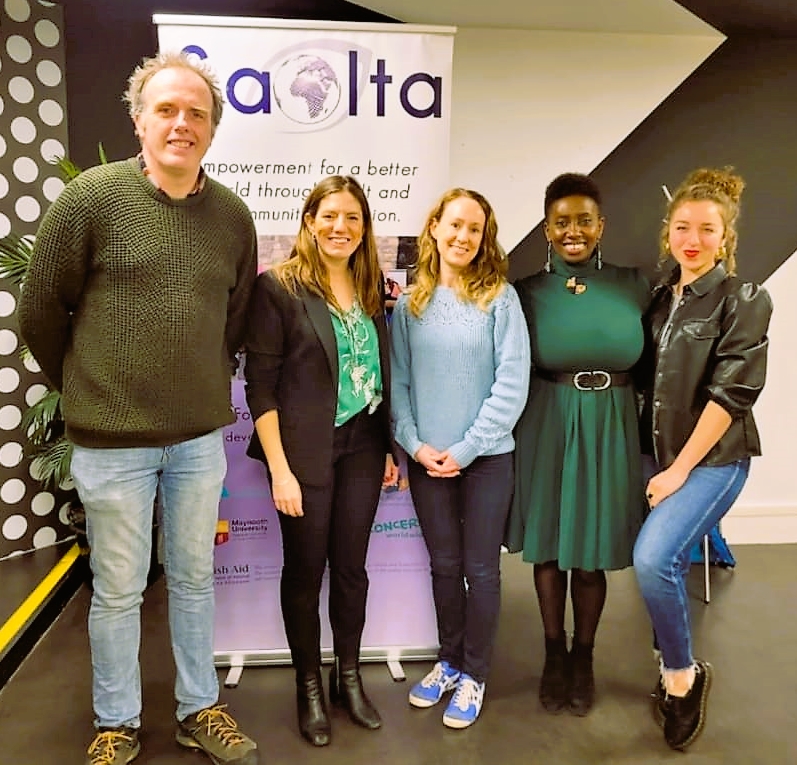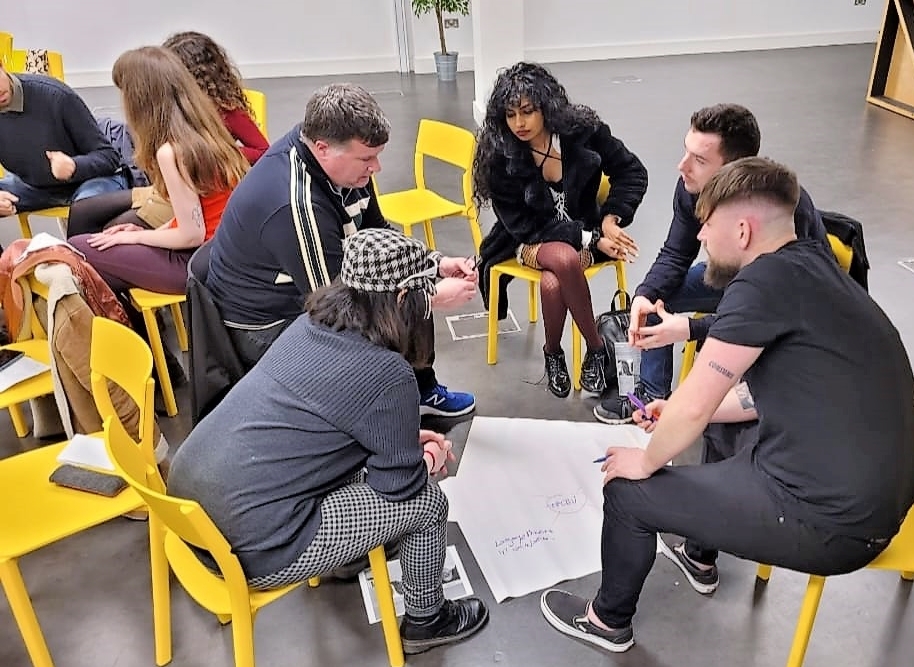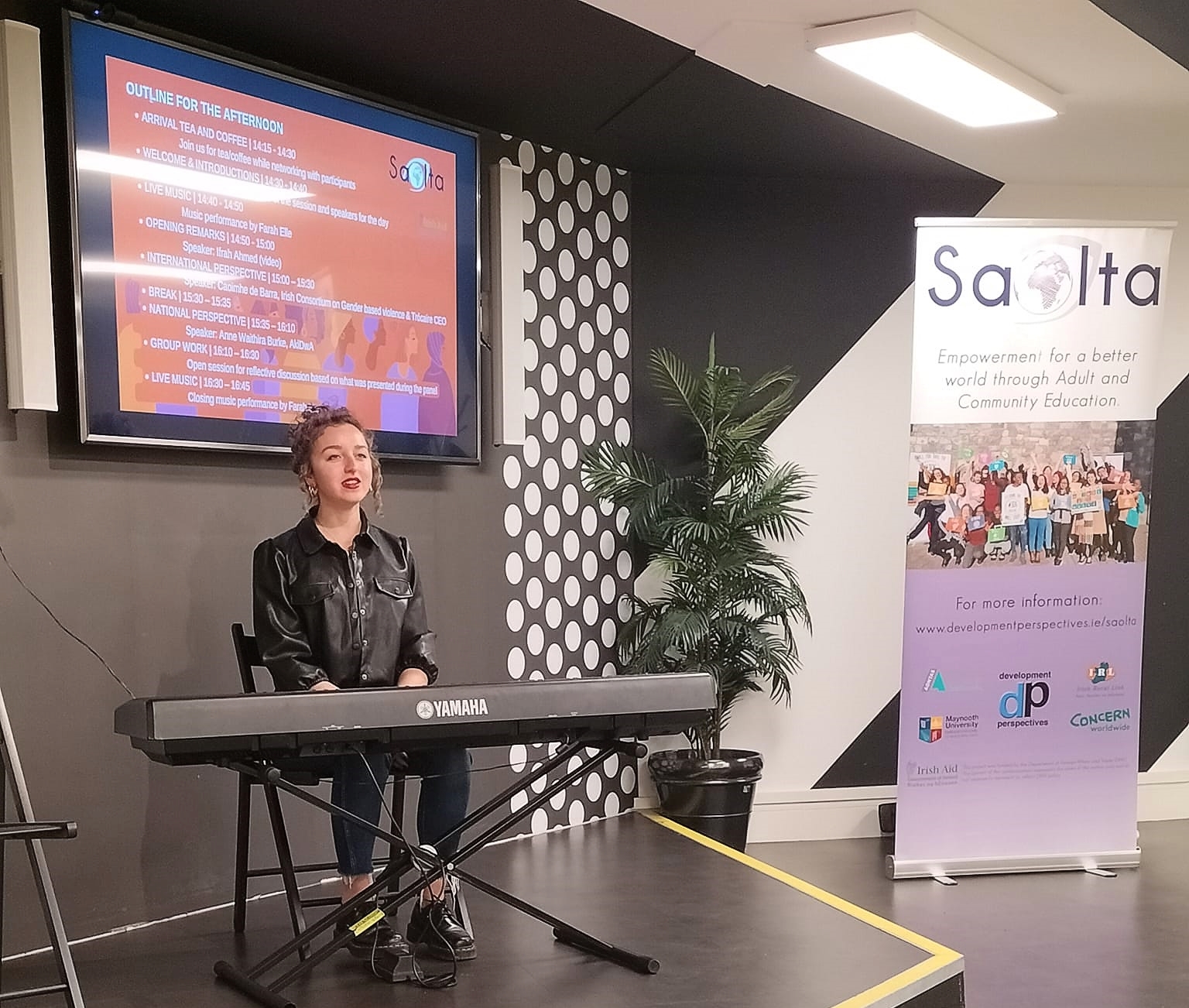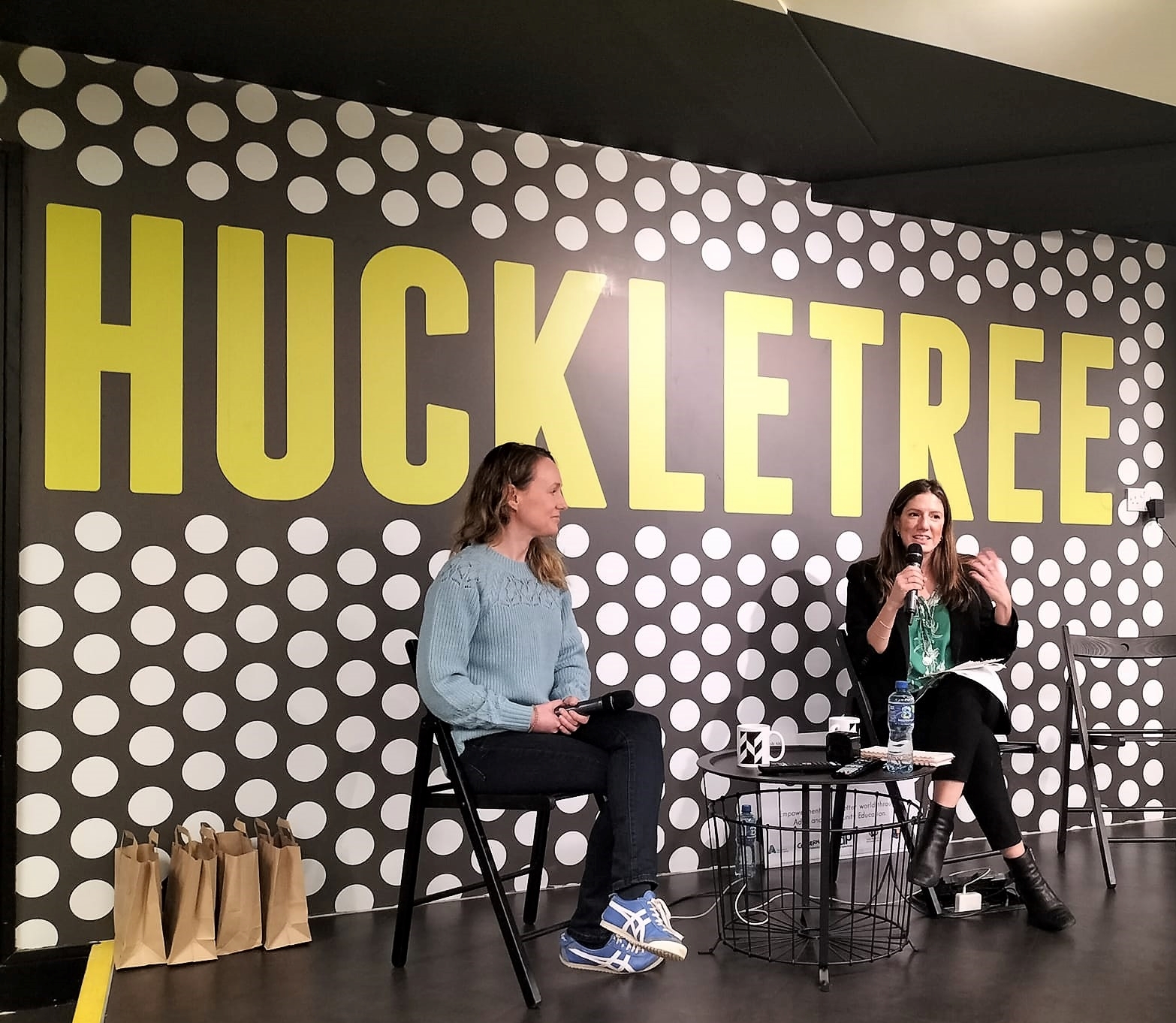

SAOLTA Ending Violence against Women and Girls, for the week that was International Women’s Week.
by Sara Hurley and Mirko Greco on the 26/05/2022
May 2022- Dublin on a rainy Saturday afternoon for the week that was International Women’s week, SAOLTA held a networking event posing the discussion: “How can Adult and Community Education be used to address Gender-Based Violence?"
We were lucky to be joined by three speakers: Ifrah Ahmed activist and campaigner on Female Genital Mutilation (FGM), Helen Nic an Rí of Trócaire, and Anne Waithira Burke activist and the Domestic, Sexual and Gender-based Violence Officer with AkiDwa. To begin the afternoon the audience was treated to the beautiful melodies and words of Farah Elle. Farah Elle’s music and work celebrates femininity, explores themes of oppression, and the paths to liberation through creativity, connection, and love. She spoke about the importance of music (or any form of creativity) to empower people, celebrate identity and cultivate wellbeing.
Next, we had a contribution from Ifrah Ahmed that joined the conversation by video due to the impact of COVID-19 on their work nationally and internationally.
Ifrah began by speaking about her experience as an activist tackling FGM and why this issue must be addressed if we are to extinguish violence against women and girls. FGM is predominantly practised in African and Asian communities, with 98% of women and girls in Somalia being survivors. Ifrah distinguished cultural and religious practice, speaking to the traditionalism that is associated with FGM and that, in essence, the practice is an anti-Islamic practice despite its prevalence in Muslim-majority communities. The tradition of scarring is often passed down through matriarchal lines. It is estimated that 200 million women and girls across the world have been harmed by this practice.
Ifrah also spoke about her experience as a migrant woman in Ireland,
“I became an activist when I didn’t speak English”.
When she started campaigning in Ireland Ifrah spoke from her personal experiences and found support from the young people in her community. This developed into working locally and nationally with Irish and migrant communities to help young people at risk of FGM. She highlighted that FGM and gender-based violence (GBV) is everyone's issue and anyone can be at risk- “We cannot live with the psychic crime of GBV and FGM."
Ifrah used social media as a medium for educating on these issues and stressed the importance of using the language of liberation and not victimisation to engage with Irish people and educate them on how to address FGM. She did not want to use language that would cause offence (or further harm to those at risk by stigmatising women, girls or the migrant community), while also pressing the importance of needing to address these challenging and complex issues. The compounding effects of COVID have meant an increase in FGM in Somalia, due to isolation, restrictions and challenges to deliver outreach programmes
Ifrah left us with a final ask to combat FGM and gender-based violence- “We need to speak out, and not be afraid- its a hard subject but we need to speak out.”
Helen Nic an Rí from Trócaire spoke about the challenges, the nuances, and the need to ensure support services do not cause further harm through their intervention and response work.
Some of the services and response work Trócaire provides in areas of conflict psychological first-aid, clinics, Helen spoke about the need for cross-disciplinary, multi-organisational collaboration between international support and local response.
Historically, the norm within conflict areas is to predominantly focus support and service for women and girls, however, there is growing acceptance that supports for men, with sensitivity to the traumas experienced by men, is needed to provide holistic care that can support all members of a community, and of those who have been displaced. Helen's contribution was interesting because, from her position, she could intersect both international and Irish contexts, providing multiple perspectives on the issues addressed by Trocaire. Similar situations of gender-based violence, family violence or stigmatisation, in different social and cultural contexts, branch off into different problems needing differentiated and context-aware support services.
One interesting conversation further developed from a question from the crowd. “Do you think that sex separation in schools, up to the high school level, could be affecting situations of gender-based violence, and familial violence?"
Anne Waithira Burke was the final speaker of the day. Anne is an educator and activist working with AkiDwa- a national network for migrant women living in Ireland. Relevant to the discussion in the previous Q&A with Helen, for Anne, the question of how community and adult education can tackle VAWG is answered through a change of culture that is achieved in part by challenging sexism and teaching consent.
Anne also spoke about the environment that perpetuates the inequality between women and men that facilitates violence: hierarchies of power and patriarchal societies. She spoke about the need to see the connection between how and who is valued in these hegemonies, and how these inequalities are enhanced for migrant women, girls and boys.
So how do we tackle this in society? Anne encouraged us to take the view that we should speak to our children and focus on the younger generation to break the cycle of sexism and violence. The generational gap is made the more complicated by the influence and use of social media, smartphones and raising families in different cultures or countries. Anne acknowledged how hard it can be for parents to be aware and navigate the risks to their children's interactions online. She recommended that parents and children should explore together and learn from each other, discuss safety online and empower their children to engage responsibly with being online. The direction of the conversation led to a Q&A and the audience asked how the nature of violence can be discussed with young people as the differences between online and offline violence do exist, meanwhile being mindful of the risks of movement of abuse from online into offline and vice versa. Anne explained in some instances that online violence can be more covert and challenging to compare and find distinctions. For example, it's easier to say “in the club, it's wrong to do x,y,z but online it's harder to call things out, and to be able to stand up for oneself". Parents must catch up on learning about the internet and what trends are going on.
Anne also highlighted that by shifting the language from victim to survivor focused, it can become a process of liberation that moves from victimisation to resilience and empowerment.
Anne’s final piece of advice was on how to build solidarity and support across marginalised groups. She explained that there needs to be more robust organising to support LGBT people and migrant LGBT people in Ireland, as violence against women and girls is rooted in the same hatred and violence directed at migrants and members of the LGBT community. Without the protection of those most marginalised in society, there will be no resolution to the violence experienced by all.
Maria Gonzalez guided the audience through the work of the members of the panel and their organisations, posing questions to the speakers and the audience that encouraged reflection on the role of global citizenship education to tackle VAWG. Throughout the afternoon Maria presented challenges to some of the ideas and language around “development” in global development or international development fields and allowed exploration of the topic through the panels' expertise and audience questions.
The presentations were closed with a final performance by Farah Elle.
Bobby McCormack led the attendees through a short group work session, where they had the opportunity to discuss the event’s question further: “What role does Adult and Community Education in ending Violence Against Women and Girls”.
The workgroups presented to the entire group their discussions that linked information from the presentations with their own experiences working in the adult and community education sector.
Arising themes centred around communication; criminality; intergenerational trauma; the need to destigmatise talking about abuse and trauma; the target groups and outreach work; and pressuring the government to act.
While the topics discussed were challenging, there was curiosity, open dialogue and sharing of perspectives on how to move forward.



0 comments
No comments on this blog yet. Would you like to be the first?